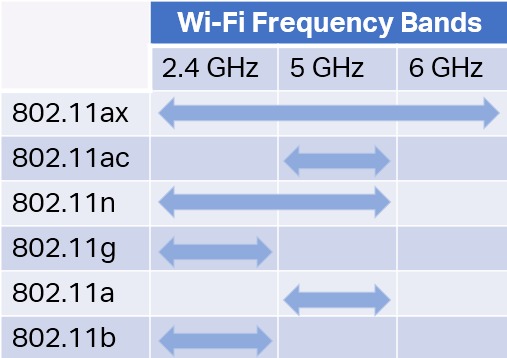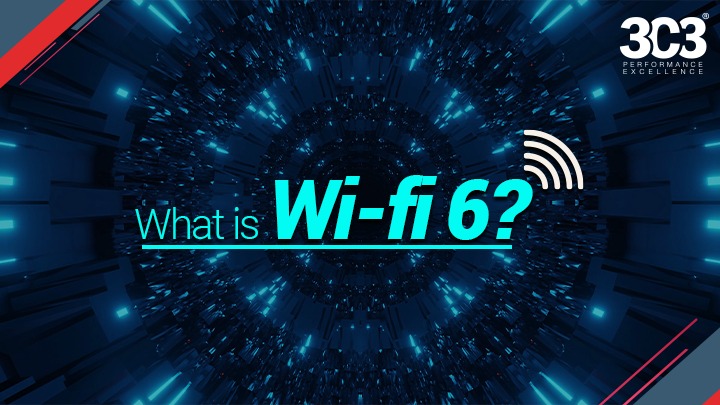What is Wi-Fi 6?
In response to the growing number of IoT devices in the world
which are connecting to wireless network like VR device,
multiple smart home devices, or simply have a large number of
devices in your household, current 802.11ac WiFi standard
routers face challenges connecting crowded wireless networks in
terms of speed and efficiency. Wi-Fi 6 is ideal for crowded
areas, such as airports, stadiums, high-rise hotels and
multi-family housing, entertainment venues and other dense
connection environments. It allows many users and devices to
stay connected simultaneously and do things like stream
ultra-high-definition movies and use bandwidth-intensive,
mission-critical business applications.
Wi-Fi 6 is the next generation standard in WiFi technology.
Wi-Fi 6 also known as “AX WiFi" or "802.11ax WiFi” builds and
improves on the current 802.11ac WiFi standard. Wi-Fi 6 uses
both 1024-QAM to provide a signal packed with more data (giving
you more efficiency) and a 160 MHz Channel to provide a wider
channel to make your WiFi faster.
More Bandwidth on a Wider Channel
Wi-Fi 6 expands the WiFi band from 80 MHz to 160
MHz, doubling the channel width and creating a faster connection
from your router to the device, increases the overall bandwidth
available, enabling higher speeds and better connection quality
for high bandwidth use cases like video streaming.

Wi-Fi 6 devices benefit from operation in both the 2.4 GHz and 5
GHz bands. This balances higher transmission rates achievable in
the 5 GHz spectrum where there are more available
non-overlapping radio channels, fewer devices operating, and
less potential for interference with opportunities to transmit
in the 2.4 GHz band where superior propagation characteristics
(e.g., range and the ability to pass through building materials)
may be better suited for IoT (Internet of Things)
applications

Increased Efficiency with OFDMA
The Wi-Fi 6 standard uses Orthogonal frequency division multiple access
(OFDMA) for increased efficiency. With 802.11ac WiFi, each delivery
truck or “packet” could only deliver one parcel to one device at
a time. But with OFDMA, each truck can deliver multiple parcels
to multiple devices simultaneously. This vast improvement in
efficiency works for both uploads and downloads
Technocrats
predicts that WiFi 6 will act as a supplement to 5G, which
similarly promises faster speeds and better IoT support through
mobile broadband. However, WiFi 6 will likely be used for indoor
connections, and 5G will be used for more outdoor and
intermediary connectivity

Wi-Fi 6 network can only be guaranteed by using the
correct cabling infrastructure. TSB-162-A recommends running two
Category 6A cabling to wireless access points to ensure the
cabling infrastructure can deliver the bandwidth needed for
current and future applications.
3Wi-Fi 6 network can only be guaranteed by using the correct
cabling infrastructure. TSB-162-A recommends running two
Category 6A cabling to wireless access points to ensure the
cabling infrastructure can deliver the bandwidth needed for
current and future applications.
3C3 - High Speed 10G Ethernet U/UTP, S/FTP Cable system
complimented by Field Terminated RJ45 Plugs can reach 100 m
under full PoE load to support the wireless access points in
these types of applications. 3C3 - Outdoor Category 6A High
Speed 10G Ethernet cables are ready to provide solutions for
Outdoor applications. 3C3 – Field Terminable RJ45 plug connects
the network cable from patch panel directly to a wireless access
point without additional connections in between, saving time and
money.
